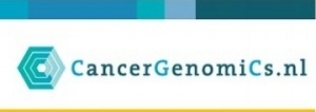Occasionally (too often) a newspaper publishes a story that is just downright irresponsible. This story from the Daily Express fits into this category.
'I beat cancer by eating pineapples' Brave woman, 31, shuns chemotherapy to self-medicateDaily Express – 30/03/15
Any reader of this blog will understand that this is rubbish, but it’s worth looking at why anecdotal stories like this are useless as evidence for therapy.Anecdotal evidence is essentially a story told by an individual or individuals. We are a story-telling species, and people generally find anecdotes highly compelling. That isn’t surprising really. In the past it was advantageous for us to err on the side of caution; it is usually harmless to mistakenly see two things as connected (my friend ate those berries and got sick), while not seeing things as connected could do you real damage (my friend ate those berries and got sick, but I’m sure I’ll be fine). As I discussed in a previous blog, we are very good at seeing patterns, whether they are real or imaginary. While that was a very useful strategy in the past, in the world of scientific medicine our trust of anecdotes is a damaging thing.An example of this is the old story of “smoking can’t be dangerous; my granddad smoked 20 a day and lived to 92”. This is known as reporting bias. If the granddad had died earlier (or the woman in the article above had not recovered) the story would not have been repeated. We only hear about it the times when something appears to have worked, and not the times when the same thing didn't work.This is also similar to another form of bias that we are all prone to, confirmation bias. This is the well-known phenomenon that we are more likely to remember something if it confirms an opinions we already have. So people who believe that chemotherapy is doing more damage than good are more likely to remember and repeat a story like this than another with a worse outcome.Another major fault with anecdotal reports is that they are seen in isolation and not in a wider context. If someone is feeling ill they may try multiple things to see if they feel better. Most of the time they will get better all by themselves, but will give the credit to the last thing they tried. This is how most cold and flu "medicines" work, relying on the fact that people make this mistake. Just because one event happens before another (I took this product and then felt better), doesn’t mean that the first caused the second.Modern medicine uses clinical trials as evidence for whether a therapy works or not. In many ways they are the exact opposite of anecdotes: they are blinded, so control for doctor and patient bias and the placebo effect; they expect random results like spontaneous regression and can see them in the wider context; and they typically have large numbers of people included (thousands) as opposed to tiny numbers of people in anecdotes. So back to this article. The author credits “cancer-zapping bromelain” for the regression of the cancer. In fact, there is very little suggestion that bromelain has anticancer activity. There are some studies on cells growing in a dish, but these are not reliable. It has been suggested to be effective in lessening the side-effects of chemotherapy, but there is no evidence for this (there was a registered clinical trial, but this has been completed and not reported results, suggesting a negative outcome).The reality of this story is that people sometimes get better spontaneously. Even the deadliest cancers have spontaneous, unexplained regressions. A story like this can do no good, and has no place in the public sphere. Congrats Daily Express, you are just as bad as the Daily Mail.
So back to this article. The author credits “cancer-zapping bromelain” for the regression of the cancer. In fact, there is very little suggestion that bromelain has anticancer activity. There are some studies on cells growing in a dish, but these are not reliable. It has been suggested to be effective in lessening the side-effects of chemotherapy, but there is no evidence for this (there was a registered clinical trial, but this has been completed and not reported results, suggesting a negative outcome).The reality of this story is that people sometimes get better spontaneously. Even the deadliest cancers have spontaneous, unexplained regressions. A story like this can do no good, and has no place in the public sphere. Congrats Daily Express, you are just as bad as the Daily Mail.



